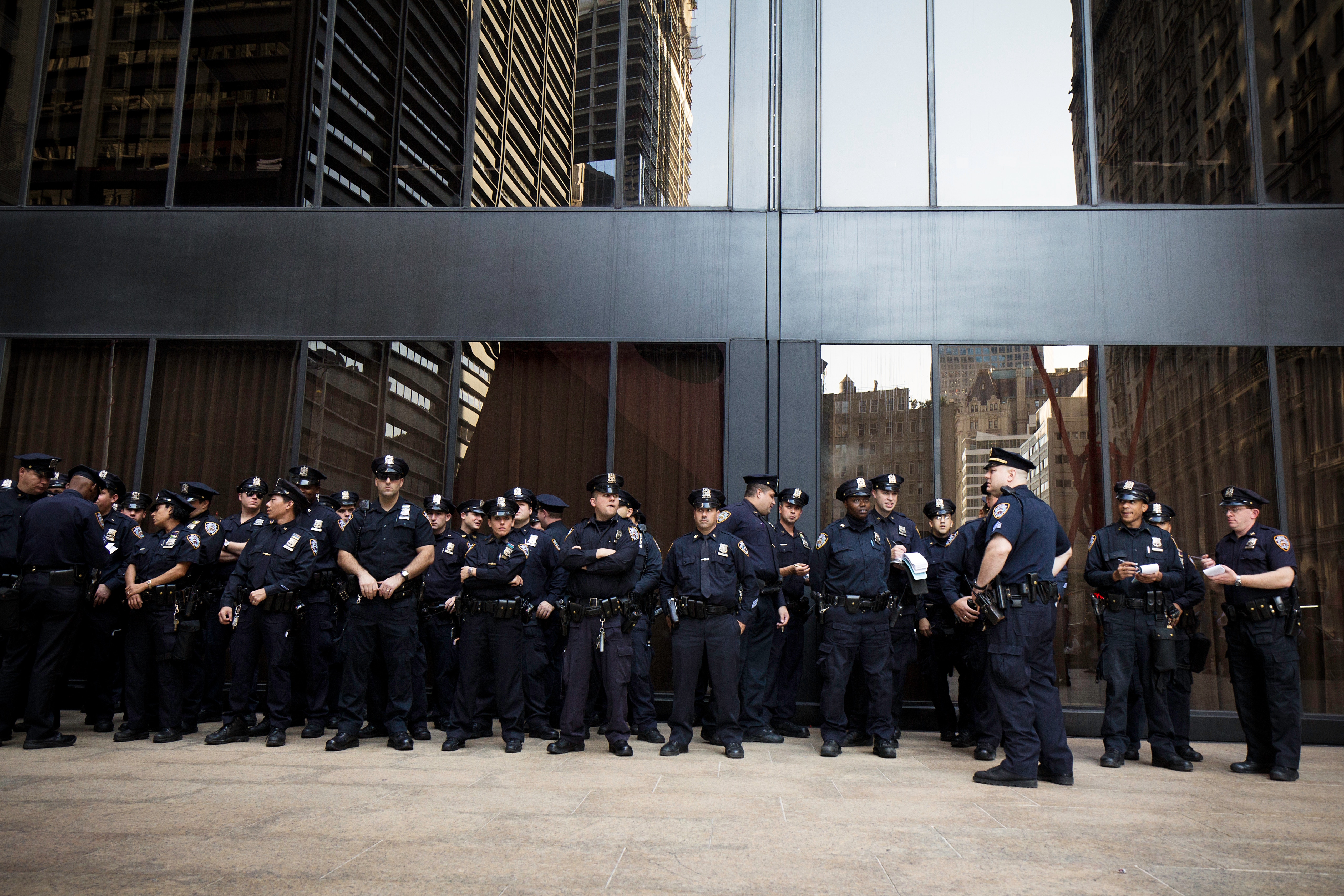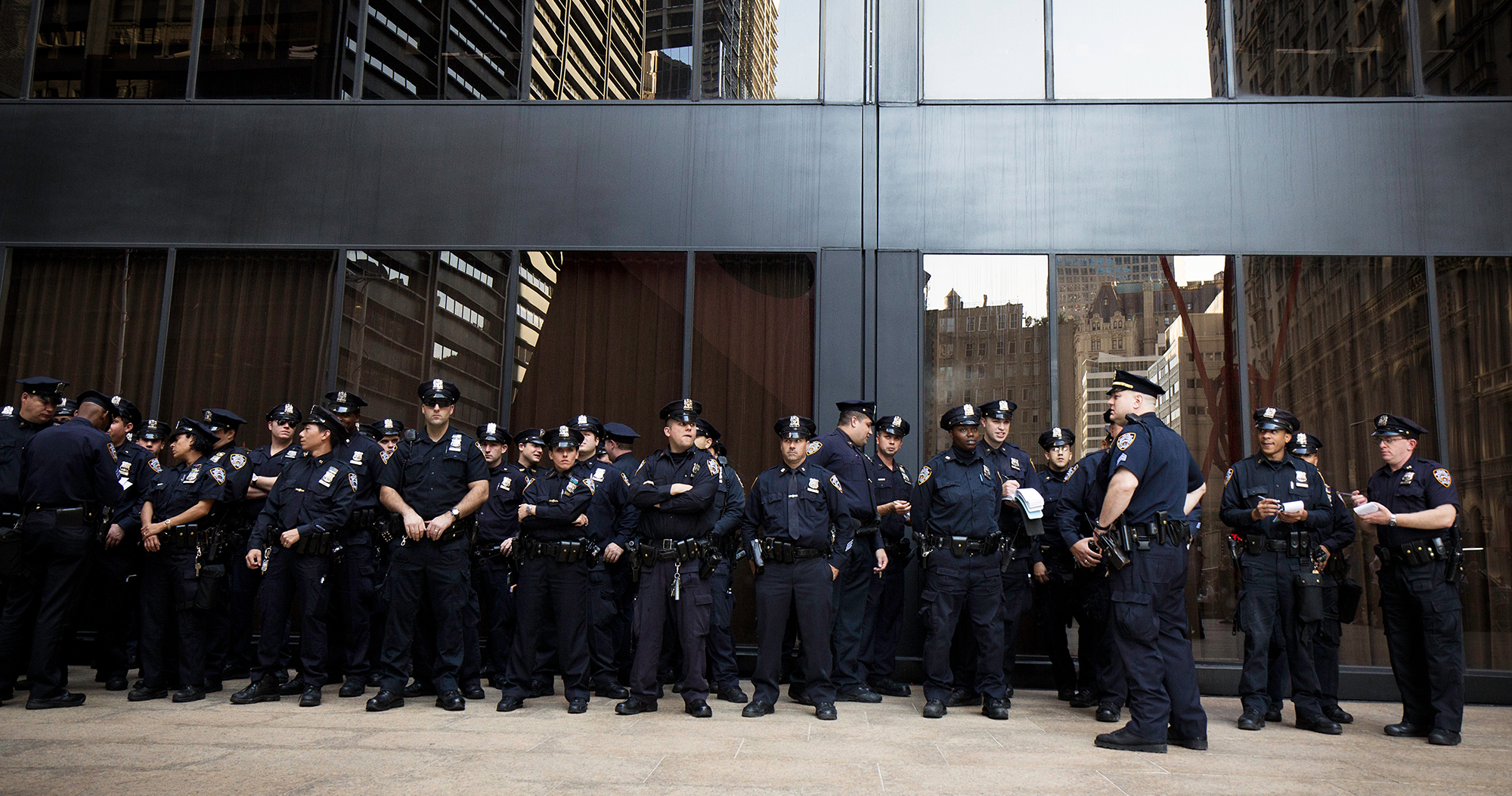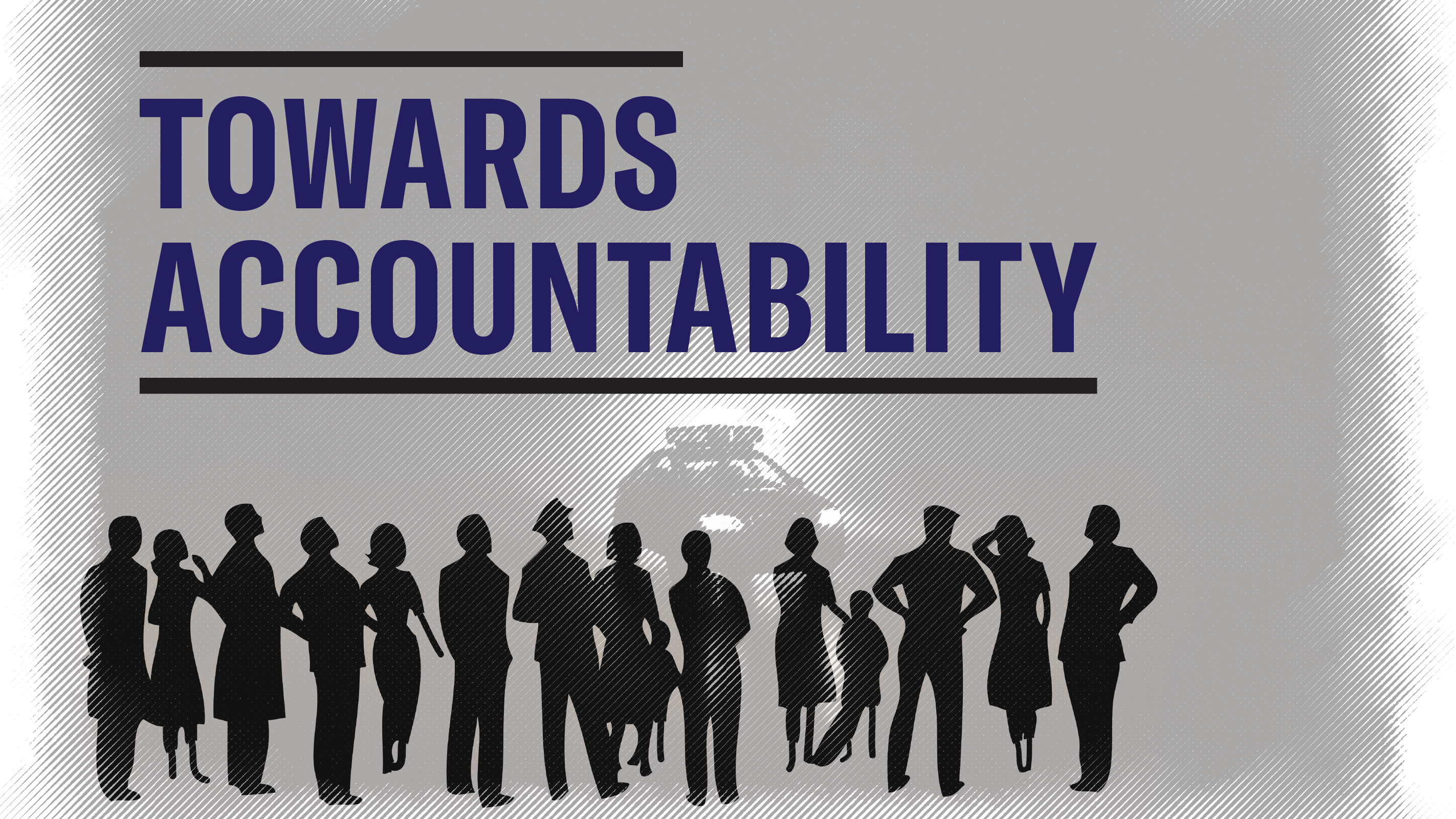Much too often, when officers in the Los Angeles Police Department break the rules, their disciplinary process fails to hold them accountable. Now is a moment for serious reform to the way the police department disciplines its officers. The L.A. City Council is preparing to vote on changes to the Board of Rights — the disciplinary appeal board that has the ultimate say in whether officers accused of serious misconduct are punished. The outcome will determine whether the board will be an effective tool to hold offices accountable for their misconduct, or yet another way for officers to escape responsibility for wrongdoing. That's why it's so troubling that the City Council is pushing forward with major changes to the Board of Rights without public input or even taking the time to learn what an effective disciplinary process looks like.
Last year, the Police Protective League, the special interest group that represents rank-and-file LAPD officers, spent more than a million dollars pushing through Charter Amendment C — which changed the makeup of the Board of Rights in the L.A. City Charter. Now, the City Council needs to pass a law to implement the new charter changes, and decide who should be allowed to sit on the Board of Rights — and who is on the board determines whether officers escape punishment or are held accountable.
Councilmembers promised to hold a series of public hearings so that they could understand how the LAPD's current disciplinary system fails to hold officers accountable, and to develop real solutions before making changes to the Board of Rights. Instead, after inaction for more than a year and a half, they are now pushing forward with recommendations without understanding the problem and are considering changes that will likely mean that even more officers who break the law, lie, or kill civilians will escape punishment and remain patrolling our communities.
The L.A. City Council may not have done its homework, but we have. The ACLU of Southern California, in conjunction with Black Lives Matter-Los Angeles and the Community Coalition, has reviewed nearly three decades of research explaining how the LAPD disciplinary process has failed, along with recommended changes proposed by commissions, experts, and oversight bodies. Recently, we issued a 42-page report distilling those findings and recommendations.
The Board of Rights is one of the biggest hurdles to meaningfully disciplining LAPD officers for wrongdoing, deterring future officer misconduct, and removing bad officers from our streets. The City Council needs to take seriously its responsibility to change this system and invest in a system that will help, rather than hinder, those goals.
What is the Board of Rights?
The Board of Rights is a three-person panel made up of two high-ranking LAPD officers and one civilian that determines whether LAPD officers accused of serious wrongdoing remain on the force or receive significant penalties.
The disciplinary process for LAPD officers starts with a complaint for violating LAPD policy. LAPD conducts an internal review, and, if it finds that an officer did violate that policy and deserves a significant penalty, the case is referred up to the chief of police. If the chief reviews the investigation and agrees that the officer is not only guilty but deserves a lengthy suspension, demotion, or termination, the chief can't actually demote, suspend, or fire that officer. Instead, the officer gets to challenge his or her discipline to the Board of Rights, which decides whether the officer should receive the chief's recommended punishment — or any punishment at all. The Board of Rights therefore has tremendous power in determining whether LAPD officers are held accountable for wrongdoing.
What disciplinary changes are the City Council considering?
The City Council is considering changing how civilians who serve on the Board of Rights are selected. This is a big deal for two reasons: First, the requirements for civilians to serve on the Board of Rights and the secretive way in which they are selected by the Police Commission have resulted in a pool of civilians who, according to the city's own analysis, are even more likely than LAPD management to vote to reduce or eliminate punishment. Civilians were added to the Board of Rights to try to eliminate bias in favor of officers, but the selection process was manipulated and the chosen civilians ended up being a thumb on the scale in favor of accused officers.
Second, as a result of voters adopting Charter Amendment C in March 2017, LAPD officers will soon get the option to select a Board of Rights panel made up of three civilians, which means the civilian panelists will have full control over the officers' punishment. How civilians are defined and selected will therefore have a huge impact on whether the Board of Rights will hold officers accountable or routinely let them off without serious punishment even for the most serious misconduct.
What is wrong with the Board of Rights?
Our report highlights six main problems with the Board of Rights that commissions, politicians, oversight agencies, the public, former police chiefs, and officers themselves have consistently cited over the past 30 years.
- The Board of Rights undermines LAPD discipline through excessive leniency. All of the flaws observed in Board of Rights proceedings — including structural limitations, procedural errors, and inconsistencies between the evidence and the board's decisions — uniformly decrease the likelihood that officers who commit serious misconduct receive serious discipline.
- Officers perceive the Board of Rights as biased. The Board of Rights tends to reject the chief's recommended punishment in around 50% of the cases it hears, yet officers still complain that they feel the board's panels are unwilling to objectively consider the evidence and act contrary to the chief's wishes.
- The Board of Rights imposes inconsistent discipline. There are significant and unexplained disparities in outcomes involving similar misconduct, as well as a tendency to treat misconduct against the public less severely than violations of administrative rules.
- Board of Rights proceedings and outcomes lack transparency. In large part due to restrictive state laws that prohibit disclosure of officer disciplinary records, the public has no access to Board of Rights hearings or outcomes, which fosters distrust by the public as well as among officers.
- The department's defense of its disciplinary decisions before the Board of Rights is inadequate. The department relies on police officers to defend the chief's recommended discipline in Board of Rights hearings, but those officers are pitted against seasoned defense attorneys — often provided to the accused officer for free by the Police Protective League — and their lack of legal knowledge and experience often contributes to the high rate of reversal.
- Board of Rights panels have insufficient training. Although the only civilians who can serve on Board of Rights panels are those with significant experience in mediation, arbitration or similar work, research has observed many procedural errors, such as imposing an unnecessarily high burden of proof or reaching not guilty verdicts that rely on facts that are directly contradicted by the evidence.
What should the City Council do to improve the Board of Rights?
Our report provides a series of recommendations drawn from the research and community input that would allow for real and sustained change around LAPD discipline to ensure that officers who are guilty of misconduct are truly held accountable, and increase both public and officer faith in the system.
- Real civilians. Make sure that civilians on the Board of Rights represent the diverse people and experiences that make up the City of Los Angeles, selected through an open and transparent process within the City Council. This includes making sure that people with past arrests are not excluded, and adhere to the common-sense understanding that “civilians” do not include current and former police officers.
- Real oversight. Board of Rights outcomes and voting patterns should be reported regularly, and hearings audited and reported on, so that the public knows what is happening behind closed doors.
- Real advocacy. Trained attorneys should defend the Department's recommended discipline instead of using LAPD officers with no legal training to go up against seasoned defense attorneys.
- Real accountability. Standardize penalties and ensure violations against the public like excessive force or filing false police reports result in more significant penalties than they do currently.
- Real training. All Board of Rights panelists should have an accurate and unbiased understanding of issues the board routinely considers, such as excessive force and domestic violence, and training should include community-based experts.
Date
Friday, November 30, 2018 - 1:15pmFeatured image


